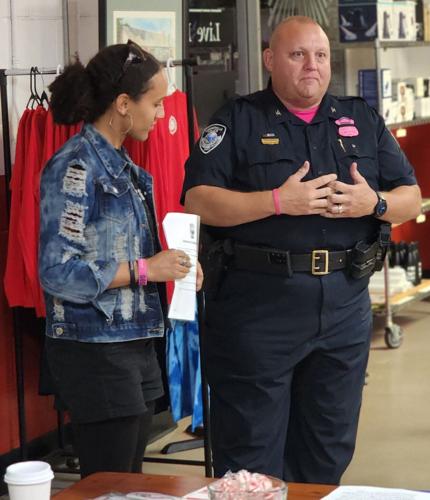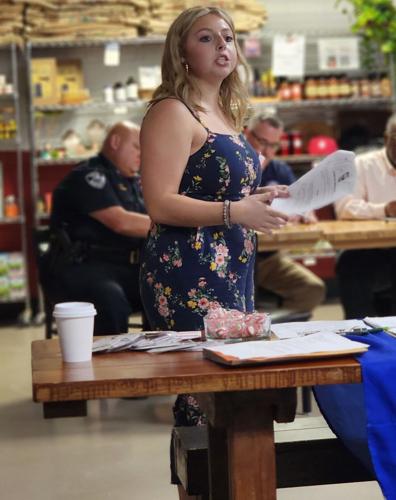Members of the Summerville Police Department gathered with civilians from several walks of life to share insight on law enforcement's relationship with the public at the Dignity Project's Oct. 6 forum held at Coastal Coffee Roasters.
Summerville Police Chief Doug Wright kicked off one of a series of oft-mentioned "tough conversations" by sharing his own struggles in watching Minneapolis P.O. Derek Chauvin kill George Floyd practically in real time during the modern era of social media feeds.
"When we saw what was going on around the country as a result of it, we saw an intense rage and anger of a compilation of many years and decades of people having felt mistreated by law enforcement. This is what blew the top off the pot," imparted the New Jersey-born commanding officer.
During a protest at Hutchinson Square in the immediate aftermath of the May 2020 George Floyd incident, Wright and other officers took steps to engage in dialogue with the demonstrators, as explained by Rev. Rich Robinson of the Coastal Crisis Chaplaincy, who was also in attendance that evening.
Robinson — himself a former Charleston City police officer — recounted how he joined forces with Summerville PD in organizing regular Zoom sessions that saw law enforcement members and non-police partake in role-reversal scenarios. Police would describe how they may have reacted to a circumstance as a civilian, while community members would communicate how they might have approached specific situations as a responding officer.
Those efforts to bring both sides to the same table via his chaplaincy group and the Dignity Project, said Robinson, has fostered respect between cops and regular citizens, particularly in relation to the Summerville police force.
"We're citizens just like you," added Wright. "You've empowered us and ordained us to allow us to serve you in a capacity to protect you and your families."
He went on to note how his department has zero tolerance for bad behavior on the part of members in his command.
"We treat our police officers fairly, but we also hold them accountable. And that's how law enforcement has to be henceforth from here on out. We got to have people like you all coming together, working with us shoulder-to- shoulder and willing to help show us what our reflection is in the mirror, " Wright stated.
Dignity Project members proceeded to divide the night's attendees into teams that discussed and answered questions involving:
* What law enforcement can do to build trust and confidence in the people they serve.
* One thing they would change pertaining to how police perform their duties of enforcing the law.
* Possible initiatives that law enforcement and the community can act on to engage youth groups.
In conversing with his own individual group, Summerville PD Captain Tim Jones addressed how cops are attempting to make strides in building closer relationships with the people they serve by actually exiting their cruisers and walking the streets to initiate face-to-face dialogue with individuals. He further suggested that he and his colleagues should continue to look into utilizing social media channels (i.e. TikTok, etc.) to reach out to those who may not feel comfortable with face-to-face interaction.
"We're not here to be security guards," he affirmed, "we're here to help people."
Others chimed in by suggesting that police set up basketball games and other interactive sporting events in the interest of forging bonds with kids. Another idea broached was folks signing up for ride-alongs with cops.
A recurring topic that was voiced by more than one participant in the round-table discussion was periodic police mental evaluations as a precaution for cops who may not be exhibiting signs of suffering from PTSD or other stress-induced conditions.
Wright maintained that mental health is something that his department takes seriously, as officers under his watch are consistently undergoing counseling as a part of a peer-based Employee Assistance Program (EAP).
To that end, he conveyed that constant monitoring is his way to ensure that officers don't fall victim to a "tremendous" mental breakdown.
Issues affecting his officers and fellow law enforcers from neighboring commands, continued Wright, are also brought to the attention of other commanding officers of the Lowcountry since chiefs and sheriffs from Berkeley, Dorchester, Charleston, Goose Creek, etc. convene every three months to touch base on emerging trends and similar items.
Although their areas of jurisdiction are comprised of different demographics, he concluded, they'll exchange a great deal of useful information to help each other out.









